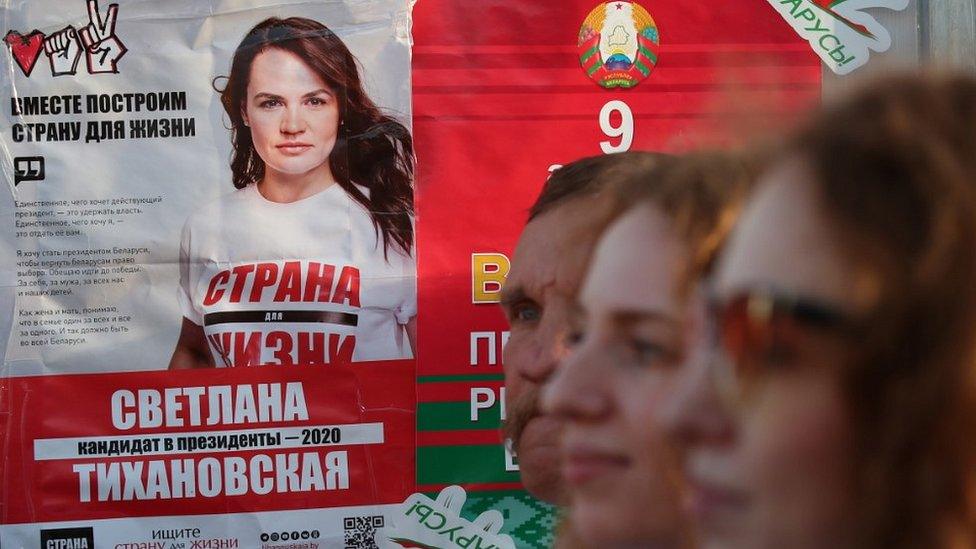Belarus election: Opposition disputes Lukashenko landslide win
- Published
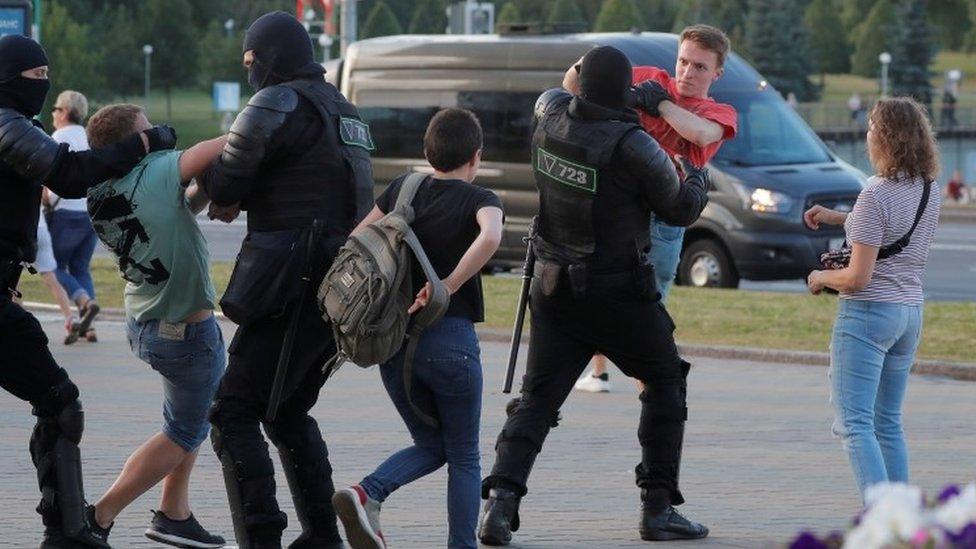
Protests continued in Minsk the day after the election
The main challenger to Belarus's Alexander Lukashenko has refused to accept the autocratic president won 80% of the vote in Sunday's election.
"I consider myself the winner of this election," Svetlana Tikhanovskaya said.
A lack of scrutiny, with no observers present, has led to allegations of widespread vote-rigging in the poll.
For a second night, police fired rubber bullets to disperse protesters in the capital Minsk, eyewitnesses say. One journalist was reportedly injured.
About 30 people were arrested in the capital. One witness said they saw police officers with truncheons beat protesters.
Polish-based broadcaster Belsat TV said several metro stations in the capital had been closed and the internet was still mostly unavailable.
Protests were also being held in other Belarusian cities.
It comes after the state security agency said it had thwarted an attempt on Ms Tikhanovskaya's life. It gave no further details.
Lithuanian Foreign Minister Linas Linkevicius said he "tried to reach Svetlana Tikhanovskaya for several hours".
"Her whereabouts not known even to her staff. Concerned about her safety," Mr Linkevicius tweeted., external
People detained in cities across Belarus on Sunday, according to media reports
The election was held amid growing frustration at Mr Lukashenko's leadership, with opposition rallies attracting large crowds. The preceding days saw a crackdown on activists and journalists.
The president has described opposition supporters as "sheep" controlled from abroad, and vowed not to allow the country to be "torn apart".
Mr Lukashenko won 80.23% of the vote, according to election officials, with Ms Tikhanovskaya receiving 9.9%.
Ms Tikhanovskaya entered the election in place of her jailed husband and went on to lead large opposition rallies.
What did Ms Tikhanovskaya say?
The opposition candidate said that the election results published on Monday morning "completely contradict common sense" and the authorities should think about how to peacefully hand over power.
"We have seen that the authorities are trying to hold on to their positions by force," she said.
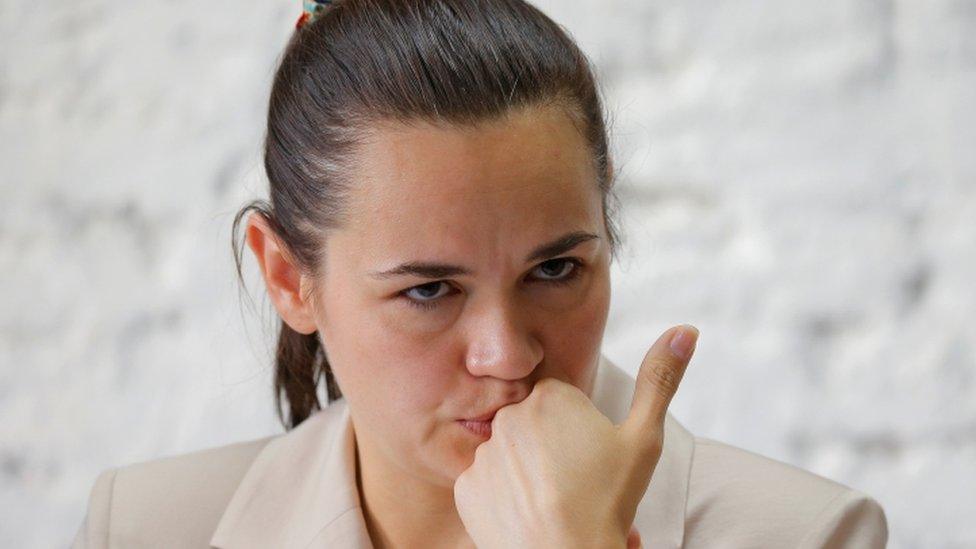
Ms Tikhanovskaya says she wants the authorities to hand over power
"No matter how much we asked authorities not to turn on their own people, we were not listened to."
Her campaign said it would challenge "numerous falsifications" in the vote.
"The election results announced by the Central Electoral Commission do not correspond to reality and completely contradict common sense," her spokeswoman Anna Krasulina said.
But Mr Lukashenko poured scorn on Ms Tikhanovskaya's comments.
"So Lukashenko, who is at the top of the power structure and at the head of the state, after getting 80% of the vote must voluntarily hand over power to them," the president said. "The orders are coming from over there [abroad]."
"Our response will be robust," he added. "We will not allow the country to be torn apart."
What has the international reaction been?
Russian President Vladimir Putin congratulated his Belarusian counterpart on his victory, despite friction over accusations of a Russian plot which Mr Lukashenko has tried to link to the opposition.
The leaders of China, Kazakhstan, Uzbekistan, Moldova and Azerbaijan have sent messages of support.
But the German government said it had "strong doubts" about the election and that minimum standards were not met.
The US said it was "deeply concerned" by the election and urged the government to "respect the right to peacefully assemble and to refrain from the use of force".
European Commission President Ursula von der Leyen called for the election results to be published.
"Harassment and violent repression of peaceful protesters has no place in Europe," she said.
What happened in Sunday's protests?
Demonstrators took to the streets in central Minsk as soon as voting ended.
Police used stun grenades, rubber bullets and water cannon to disperse the crowds.
The interior ministry said 50 civilians and 39 police were injured.
The ministry said that 3,000 people were arrested. About one-third of them were in Minsk, and the rest in other cities such as Brest, Gomel and Grodno where similar protests took place.
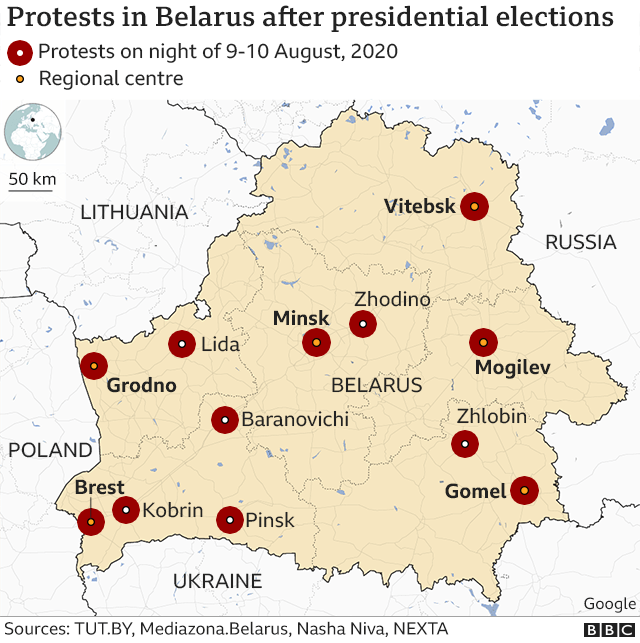

What's the context?
President Lukashenko has been in power since 1994.
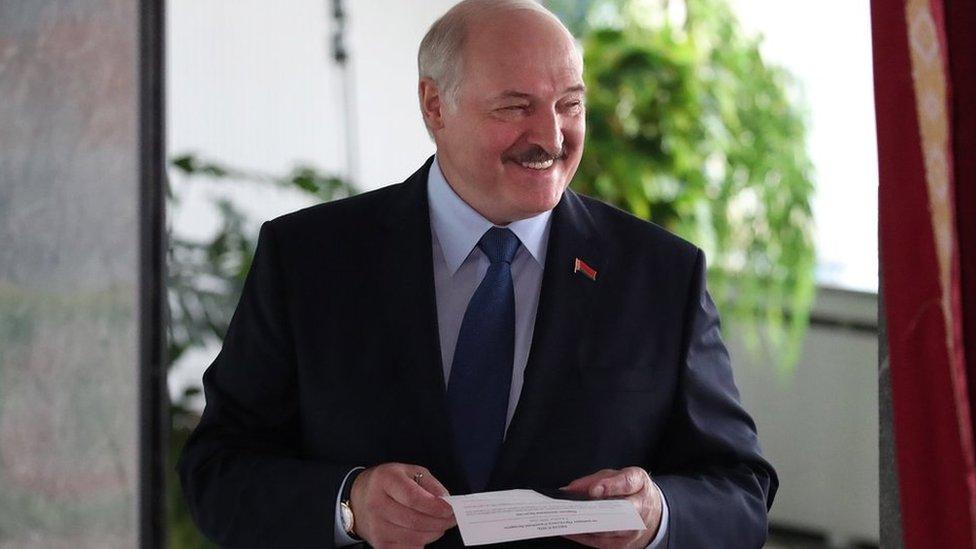
Mr Lukashenko cast his ballot at a polling station in Minsk
In the last vote in 2015, he was declared winner with 83.5% of the vote. There were no serious challengers and election observers reported problems in the counting and tabulation of votes.
The campaign saw the rise of Ms Tikhanovskaya, 37, a former teacher who became a stay-at-home mother until she was thrust into the political spotlight.
After her husband was arrested and blocked from registering for the vote, she stepped in to take his place.
As people voted on Sunday, internet service was "significantly disrupted", according to online monitor NetBlocks, external. Opposition supporters say this makes it harder for evidence of election fraud to be collected and shared.
There were already concerns over a lack of scrutiny because observers were not invited to monitor the election and more than 40% of votes were cast ahead of the election.
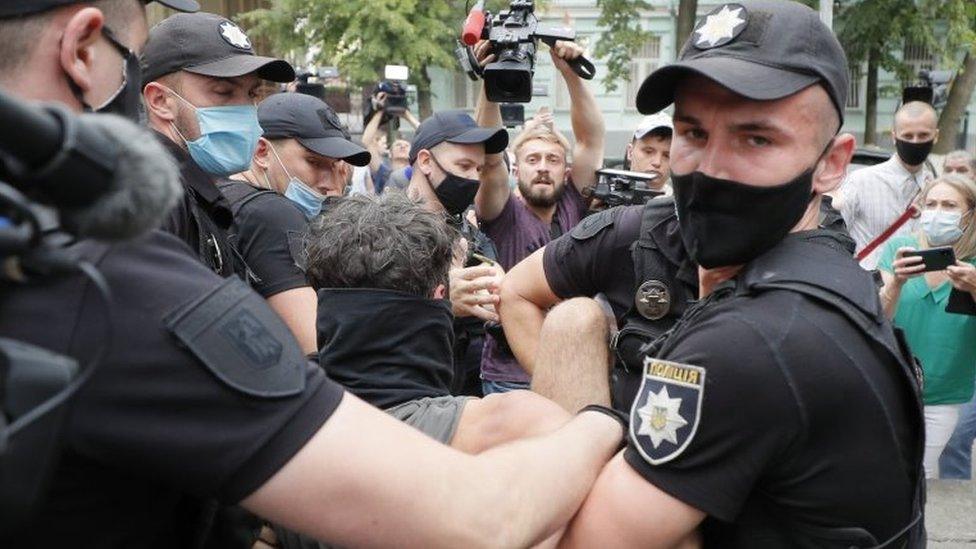
There were protests outside the Belarusian embassy in Ukraine too in support of the opposition
Tens of thousands defied an escalating crackdown on the opposition last month to attend a protest in Minsk, the largest such demonstration in a decade.
Anger towards Mr Lukashenko's government has been in part fuelled by its response to coronavirus.
The president has downplayed the outbreak, advising citizens to drink vodka and use saunas to fight the disease.
Belarus, which has a population of 9.5 million, has reported nearly 70,000 cases and almost 600 deaths.
- Published7 August 2020
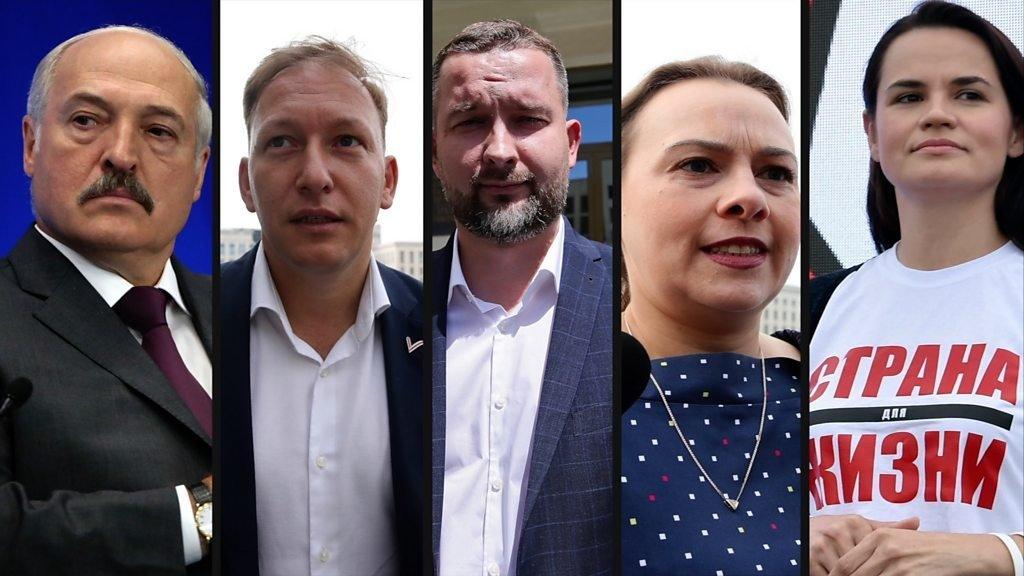
- Published1 August 2020
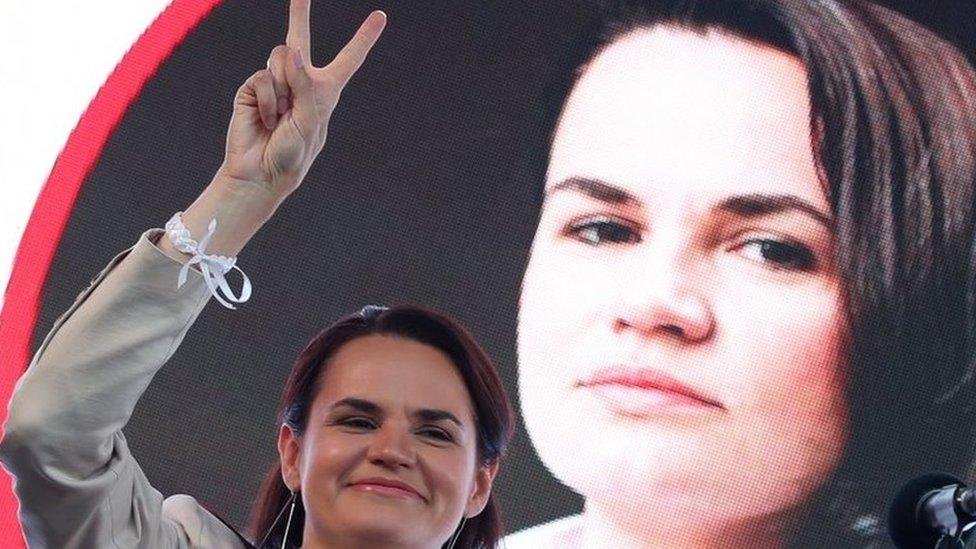
- Published7 August 2020
